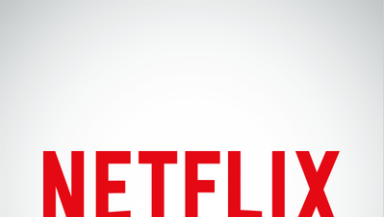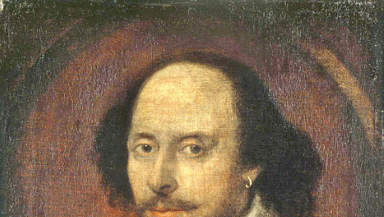Our culture is changing at breakneck speed. Like an ocean current that can pull you under or propel you forwards, it can be a hindrance or a help to serving God in the world today. Spending time thinking about the way things are changing can protect us from simply going with the flow so I offer you some reflections on what we could be expecting on the year ahead. You can see how we did last year here.
1. The Jarvisification of Search
Thanks to Siri, Cortana and Google Now, voice search is becoming a normal part of smartphone usage. Voice search is allowing near natural speech to let you phone a friend, reply to a text message or navigate to your nearest coffee shop. Thanks to wearable technology such as the Apple watch it may soon be common to see people speaking into their wrists like Dick Tracy or speaking to their cars like Michael Knight in Knight Rider. Xbox One and Apple TV can now perform very complex searches from the comfort of your sofa. Just call out "Siri find James Bond movies that feature Sean Connery" or "What was the score in the Liverpool game?" and your willing digital assistant will jump into action. Every time I try it on our Xbox I feel a little more like Tony Stark (aka Iron Man) speaking to his artificial intelligence assistant Jarvis.
It is likely that this year we will spend more time speaking to a search engine when we call customer services rather than being asked to press numbers on our phone keypads to select options from a menu. These natural language interfaces should not be confused for authentic artificial intelligence featured in recent movies such as Her and Ex Machina so don't panic that we will have a Terminator: Judgment Day scenario any time soon.
Searching the internet has become a natural part of our lives. But these free search engines make their money through advertising. In order to make their advertising more effective huge amounts of our personal data are being gathered by search engines so that our habits and preferences can be tracked.
You may have noticed adverts following you around from one website to another as something you have searched for in the past pops up on an online magazine that you read. You can see this at work if you shop on Amazon or use Netflix as the sites try to guess your viewing or purchasing preferences, suggesting things you would like to watch or buy. It is important to recognise that when we search for things, someone else is searching for us and trying to process and predict our desires so that they can target their sales towards us.
The fact that large amounts of data are being collected about us is not necessarily a bad thing as it could save us time and could help products we need find us. But we must also be aware that despite the internet appearing to be omniscient and unbiased, our view of the world is skewed by advertisers and data harvesters.
Christians must resist the temptation to try and run from new technologies, but also the opposite extreme: undiscerning utilization. We need both an entrepreneurial spirit so we can utilize technology to serve the mission of God and also a discerning mindset that is unwilling to accept reality on face value.
2. The Virtualization of Reality
Virtual reality headsets have been around for a while now, but have only had limited uptake for either specialised industries or die-hard computer gamers. But a few developments may see 2016 as the year that VR goes mainstream. The big players such as Sony with its Play Station VR (formerly known as Project Morpheus), HTC withits Vive device and Oculus Rift are all stated to hit the high street in 2016. These devices, which look like a futuristic pair of smart sunglasses, offer an immersive 360-degree, three-dimensional experience so that the images that you see projected on the screens in the glasses front of your eyes synchronize with your movements. They may be expensive to begin with as the Oculus Rift headset is rumoured to have a $1500 (£1000) start price. Sony seems to offer a slightly cheaper package with the Play Station VR possibly retailing for £300 (or a bundle deal with a Play Station 4 for around £550). But if you want an early experience, Google Cardboard has been out for a while now and for a few pounds allows you to use your smartphone as a screen that you slot into a cardboard pair of glasses. It's a paradoxically low-tech taster of a high-tech near future. If that doesn't float your virtual boat then keep an eye on the global theme park scene because there are already concrete plans for rides to feature VR as part of either roller coaster or dark rides in theme parks in the USA and Canada.
Christians must be aware of the social challenges VR will bring but again avoid the simplistic rejection of virtual reality – after all reading a book can be a very immersive antisocial escape to another reality. Christians must also recognise the opportunities for the new avenues of creativity and communication these new technologies give us as believers.
3. The Revolution will be Streamed

Watching TV is a strange experience with teenagers. I am noticing that just watching television doesn't happen any more in my household. The TV is a little like a fireplace in our house. It's a gathering point but don't expect rapt attention. Instead the TV image is like the flickering flames in a hearth; it's background radiation while the focal point of attention is a smart phone. Someone is playing a game, another watching a how-to video and someone else is watching a completely different show. The terrestrial channels are recycling many tired old shows: Strictly Come Dancing, Master Chef, I'm a Celebrity and X Factor have all done the rounds again this year. Though X Factor's viewers were lower than previous years Strictly Come Dancing's have been stronger. Yet with the lack of invention and creativity coming from the mainline channels many of the exciting new projects are coming from streaming services such as Netflix and Amazon Prime. Netflix now has over 69 million subscribers worldwide, who streamed 10 billion hours of content in three months using an average of 45 gigabytes of data. With these kinds of numbers Netflix has enough money to produce award-winning drama such as Breaking Bad and House of Cards. Amazon has also started to produce its own content and has found critical acclaim with Transparent and The Man in the High Castle. Indeed Amazon won five Emmys to Netflix's four at this year's awards. With so little content being generated by the UKs terrestrial channels I have met many people who now have forsaken TV to focus on streaming services.
It's been easy to tell that cinemas have been worried about attendance as they've been showing adverts for a while now congratulating you on going to the cinema to see a film in a way that is optimal for visual and sound quality. The adverts, which were originally commissioned to combat piracy, may sound a hollow tone as cinema picture and sound quality cannot compete with the ultra high definition screens that are available on your phone or your ultra high definition TV and watching a film with headphones on can be an even more immersive experience than the best surround sound a cinema can provide. 2015 saw an interesting development with Netflix commissioning a big budget movie with Hollywood star Brad Pitt, War Machine, which is a military satire. This may see the beginning of the media machine that is Netflix declaring war on cinema. Perhaps only the force of the Star Wars franchise can save cinema now.
With the entry of Apple Music to the music streaming world this year we expected a shift in music consumption habits. Despite Taylor Swift's early protestations, she has now signed an exclusive deal with Apple for them to stream her concert movie. Expect to see Apple to not just buy musical content from others but to start to produce their own and cut the record labels out of the equation just as Netflix has done in the world of video content.
So be prepared for streaming services to change the way you consume entertainment in 2016. Perhaps these streaming services offer new platforms for the Church to get creative and start producing more art that will be consumed by a mainstream audience.
4. The Resurrection of Books

The book is dead. Long live the book. Despite the predicted death of the book because of the double-barreled threat of blogging and e-readers, the printed book seems to be here for the foreseeable future. Alexander Alter wrote in the New York Times that "the digital apocalypse never arrived, or at least not on schedule. While analysts once predicted that e-books would overtake print by 2015, digital sales have instead slowed sharply." Expect 2016 to be filled with literary events commemorating William Shakespeare. February marks 400 years since his death and rather than ephemeral and short-lived pulp fiction and pulp journalism our culture still seems to crave something enduring. In 2015 Station 11, another dystopian novel about a post-apocalyptic future, won the Arthur C Clarke prize for science fiction. Humanity's hope was found in a travelling band of Shakespearian actors who offered the world a different story to the one that they were experiencing. Recognising that Shakespeare's worldview was profoundly influenced by scripture, perhaps reverence for Shakespeare can be an entry point for people to discover the power of the gospel and person of Christ.
5. The Islandification of the United Kingdom?
A referendum about the UK's place in the EU could take place as early May 2016. Expect impassioned speeches, as we saw in the Scottish independence vote. One side will argue for a need for greater sovereignty and security, the other for the monetary and military benefits of remaining part of the EU. After the Paris attacks and fears about the lack of borders between Schengen states, expect a renewed level of intolerant and racist rhetoric to emerge in the debate about Europe. Britain's island mindset may appear again and the old habit of referring to Europe as somewhere that we visit when we cross the channel may turn into a political reality. Christians need to be wary of both a naive utopianism and a cynical nationalism and instead model gracious discernment. In many ways British Christians have more in common with a German believer than with our own next door neighbours. As members of the global Church we need to show that we seek to be good citizens but that national boundaries are not the ultimate boundaries of our identity or compassion. 2016 could be a significant opportunity for the Church to model a better way to do international relations.













